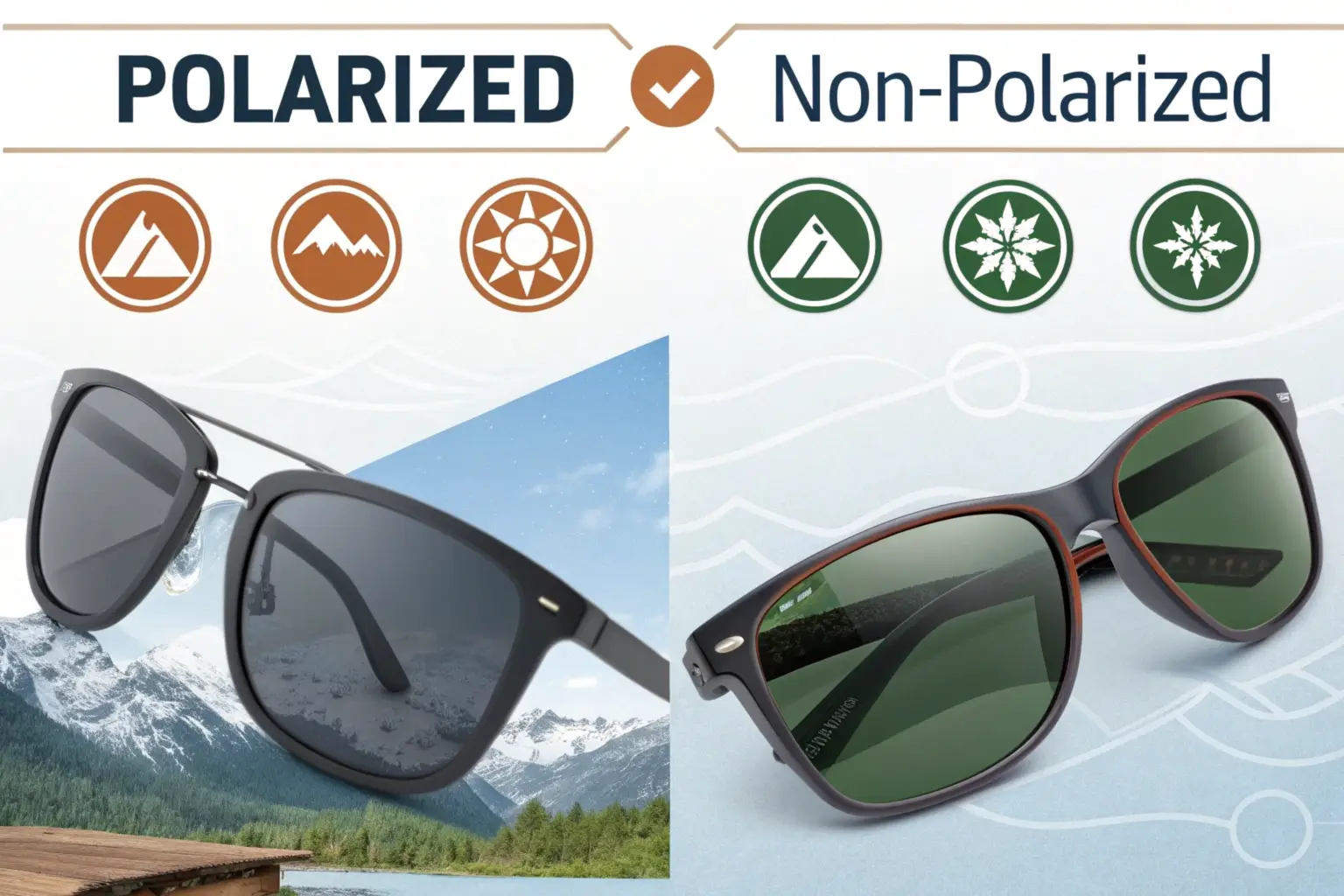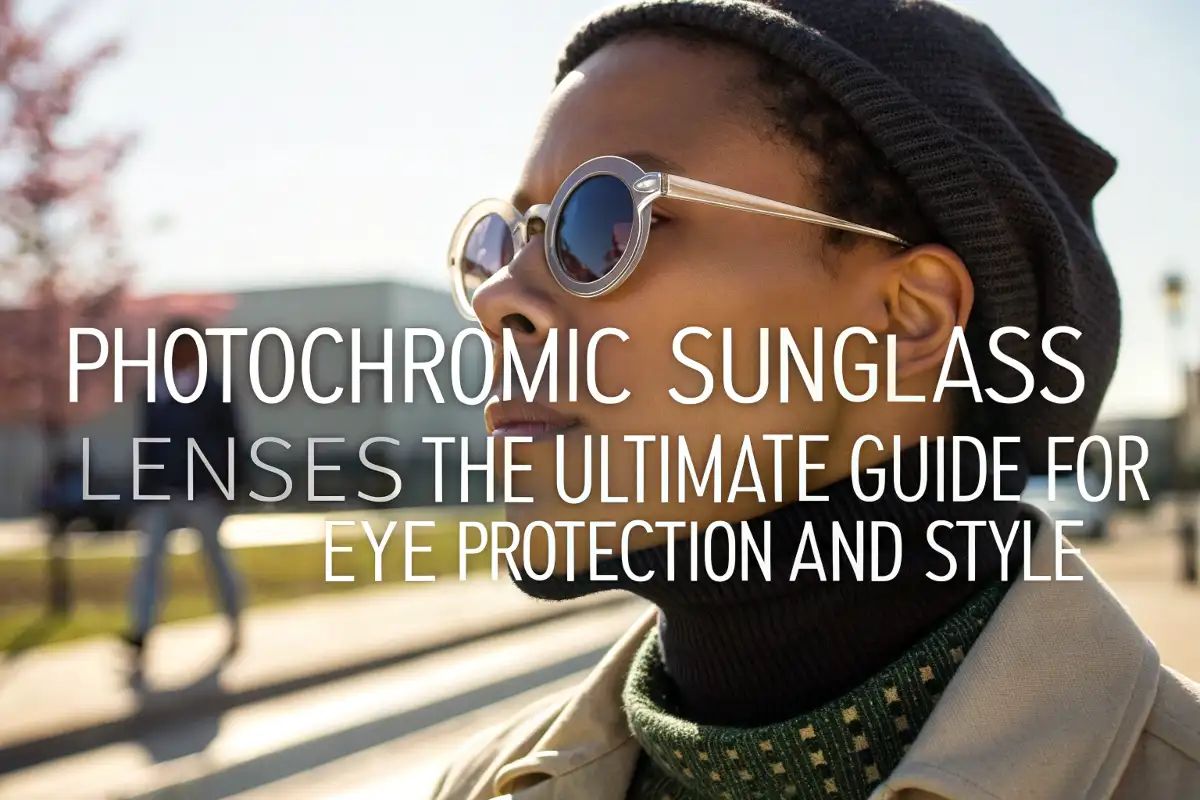Sunglasses are more than just a fashion statement—they’re essential for protecting your eyes against harmful UV rays and reducing discomfort caused by glare. When choosing the right pair, the debate often comes down to polarized vs. non-polarized sunglasses. But what do these terms mean, and which is your best option? Let’s break it down.
What Are Polarized Sun glasses and How Do They Work?
Polarized sun glasses are designed to reduce glare, especially from reflective surfaces like water, snow, and car windshields. These lenses have a unique chemical coating that filters horizontal light waves, helping you see more clearly and comfortably in bright conditions.
Polarized sunglasses reduce glare, making it easier to focus, reduce eye strain, and improve visual clarity during outdoor activities like fishing, driving, or skiing.
Polarized vs. Non-Polarized Sunglasses: What’s the Difference?
The key difference lies in how the lenses handle light. While polarized sunglasses filter out horizontal glare, non-polarized sunglasses do not.
- Polarized lenses: Block glare, reduce eye strain, and enhance contrast.
- Non-polarized lenses: Offer essential UV protection but do not address glare.
Polarized lenses can make a significant difference if you spend a lot of time near water or snowy environments. However, non-polarized sun glasses are still helpful for regular sun protection at a lower cost.
How Polarized Sun Glasses Reduce Glare and Improve Vision
Glare occurs when sunlight reflects off smooth surfaces, creating bright and often blinding light. Sunglasses with polarized lenses are specifically engineered to reduce this effect. This feature makes them ideal for activities where glare is unavoidable:
- Driving: Reduces glare from wet roads or car hoods.
- Fishing or Boating: Helps you see beneath the water surface.
- Snow Sports: Minimizes eye strain caused by reflected light on snow.
Polarized sun glasses can elevate your outdoor experience by improving visibility and comfort.
Are Non-Polarized Sunglasses Still a Good Choice?
Absolutely. While polarized lenses are excellent for glare reduction, non-polarized lenses provide essential UV protection. They are often less expensive and work well for casual, everyday wear.
Non-polarized lenses may better-fit activities like reading your phone screen, where polarization can sometimes cause distortion.
Polarized vs. Non-Polarized Sunglasses: Which Is Better for Outdoor Activities?
Here’s a quick guide to help you decide:
- Choose Polarized Sunglasses If:
- You spend much time outdoors near water, snow, or other reflective surfaces.
- Reducing glare for driving, fishing, or skiing would be best.
- Choose Non-Polarized Sun glasses If:
- It would be best if you had affordable, everyday sun protection.
- You prefer a lens that won’t distort screens (like digital devices).
Choosing Between Polarized and Non-Polarized Sunglasses for Eye Protection
Both sunglasses can protect your eyes from harmful UV rays as long as they come with UV400 protection. UV exposure over time can cause long-term damage, including cataracts and macular degeneration. When choosing sunglasses, always prioritize:
- UV Protection: Look for lenses that block 99-100% of UVA and UVB rays.
- Comfort and Fit: Ensure the frames fit well and don’t slip.
- Your Activities: Decide if glare reduction (polarized lenses) is necessary.
How to Decide: Polarized or Non-Polarized Sunglasses for Your Needs
To sum up, the choice between polarized and non-polarized sunglasses comes down to your lifestyle and needs:
- Polarized sunglasses are the clear winner if you’re an outdoor enthusiast or often deal with glare.
- Non-polarized lenses do the job of providing general sun protection and affordability.
Whichever you choose, protecting your eyes from UV rays should always be your top priority. Investing in high-quality sunglasses ensures both comfort and long-term eye health.
Final Thoughts
Understanding the difference between polarized vs. non-polarized sunglasses helps you make an informed decision. Both options offer benefits, but the choice depends on how and where you’ll use them. Choose wisely, and enjoy a clear, protected vision wherever life takes you.





